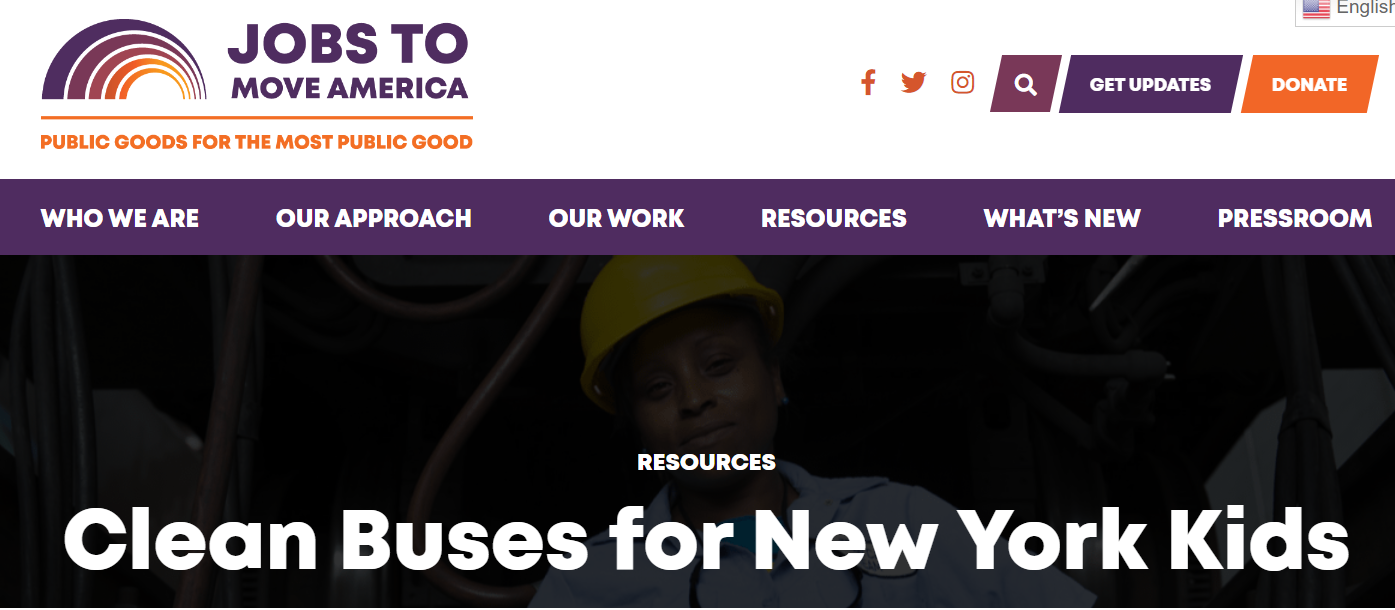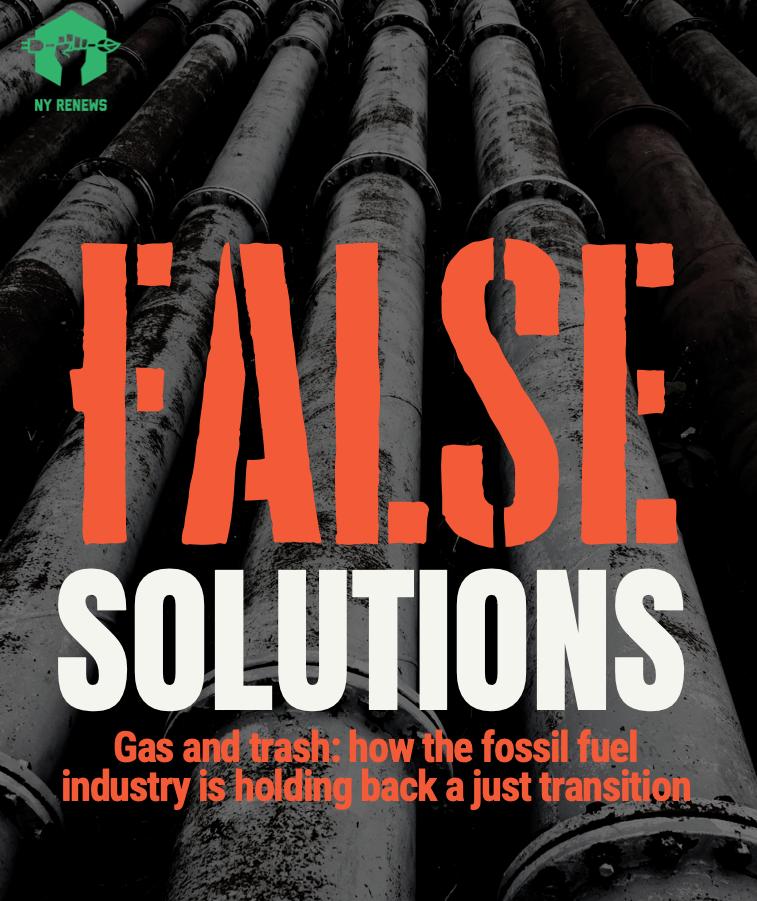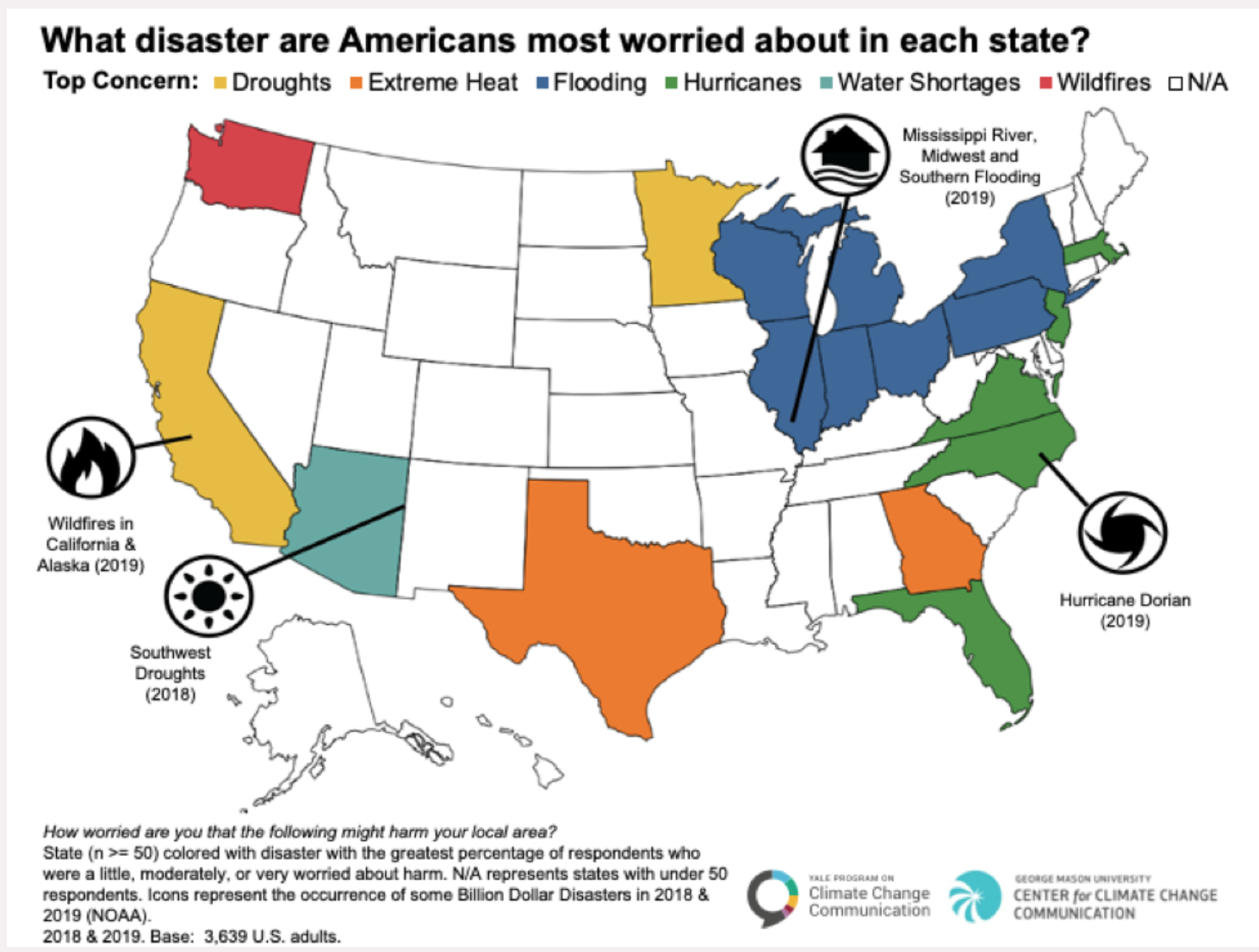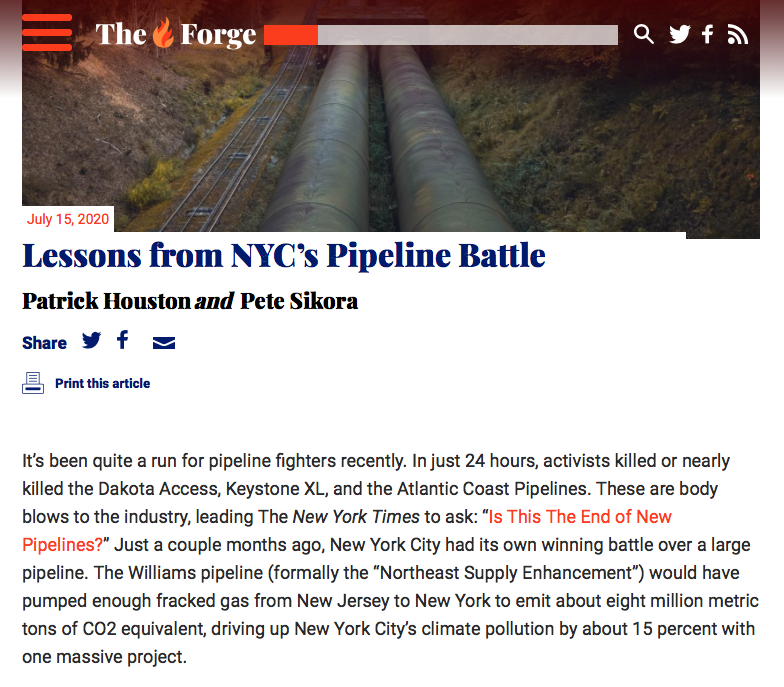Resources
Search below for resources covering the intersection of climate engagement, social science and data analytics.
RESULTS
- A broad majority (69%) of New Yorkers support levying a tax on corporate polluters, where the revenue (estimated $15 billion raised per year) would be used to invest in new renewable energy projects, community sustainability initiatives, and fossil fuel workers impacted by the transition to clean energy.
- Support for specific investments is also high:
- 65% support investing funds in large-scale renewable energy projects, like offshore wind farms and mass transit overhauls
- 63% support investing in low-income communities and communities of color to improve their climate resiliency and sustainability
- 73% support investing in programs for workers and communities impacted by the transition away from coal, oil, and gas
Clean buses for New York kids
A 2021 report from Jobs Move to America argues that a quick transition to electric school buses in New York City would not only reduce greenhouse gas emissions and create cleaner air environments for kids – the move would also create jobs in the city. The report details some key recommendations for achieving these benefits. First, it would require the creation and funding of pilot program and city-wide mandate to transition to electric buses. Then, at the state level, the report recommends securing job improvements for manufacturing and creating a long-term funding source for electric school buses. Advocates interested in supporting moves to electric school buses should consider these recommendations in their own advocacy efforts.
This report examines a particular set of “false solutions” to the climate crisis, each of which is marketed (often by fossil fuel interests themselves) as a “renewable” or “clean” or “low-carbon” alternative to fossil fuels: Biofuels, Renewable Natural Gas, Biomass, Green Hydrogen, and Waste to Energy. The author argues that these false solutions are the wrong direction for New York, as the state looks to achieve the emissions reduction targets established by the 2019 Climate Leadership and Community Protection Act.
How does the American public perceive climate disasters?
Different parts of the country see various kinds of extreme weather as most concerning, perceptions which are largely in line with actual major disasters that have occurred in those regions. This report provides concern profiles for the 18 largest states, drawing on survey data from 2018 and 2019. Over half of Americans see such extreme weather events posting a high or moderate risk to their community in the coming decade, and two thirds see a climate link to US weather (though only a third think climate affects our weather "a lot").
Lessons from NYC’s Williams Pipeline battle
A multi-racial coalition focused on organizing and escalating tactics helped defeat the Williams Pipeline: The Stop the Williams Pipeline coalition won by building, organizing, and activating a large and intense base of opposition targeted at the key decision-maker, Governor Andrew Cuomo.
Solar with Justice
Under-resourced communities face a disproportionate share of societal burdens and lack access to many of the benefits other communities enjoy. Participation in the solar economy can help ease these burdens and provide low-and middle-income households with economic relief.
Poll: Americans on Clean Power
3 in 4 respondents said that it is a high priority to cut air pollution from energy production that has negative public health effects, including a slight majority of Republicans and 90% of Democrats. 7 in 10 said it is a high priority to reduce greenhouse gases from energy production, including just under half of Republicans and 91% of Democrats. After a briefing and assessment of arguments pro and con, 7 in 10 approved of the US participating in the Paris Climate Agreement.
Pagination
- Previous page
- Page 2



